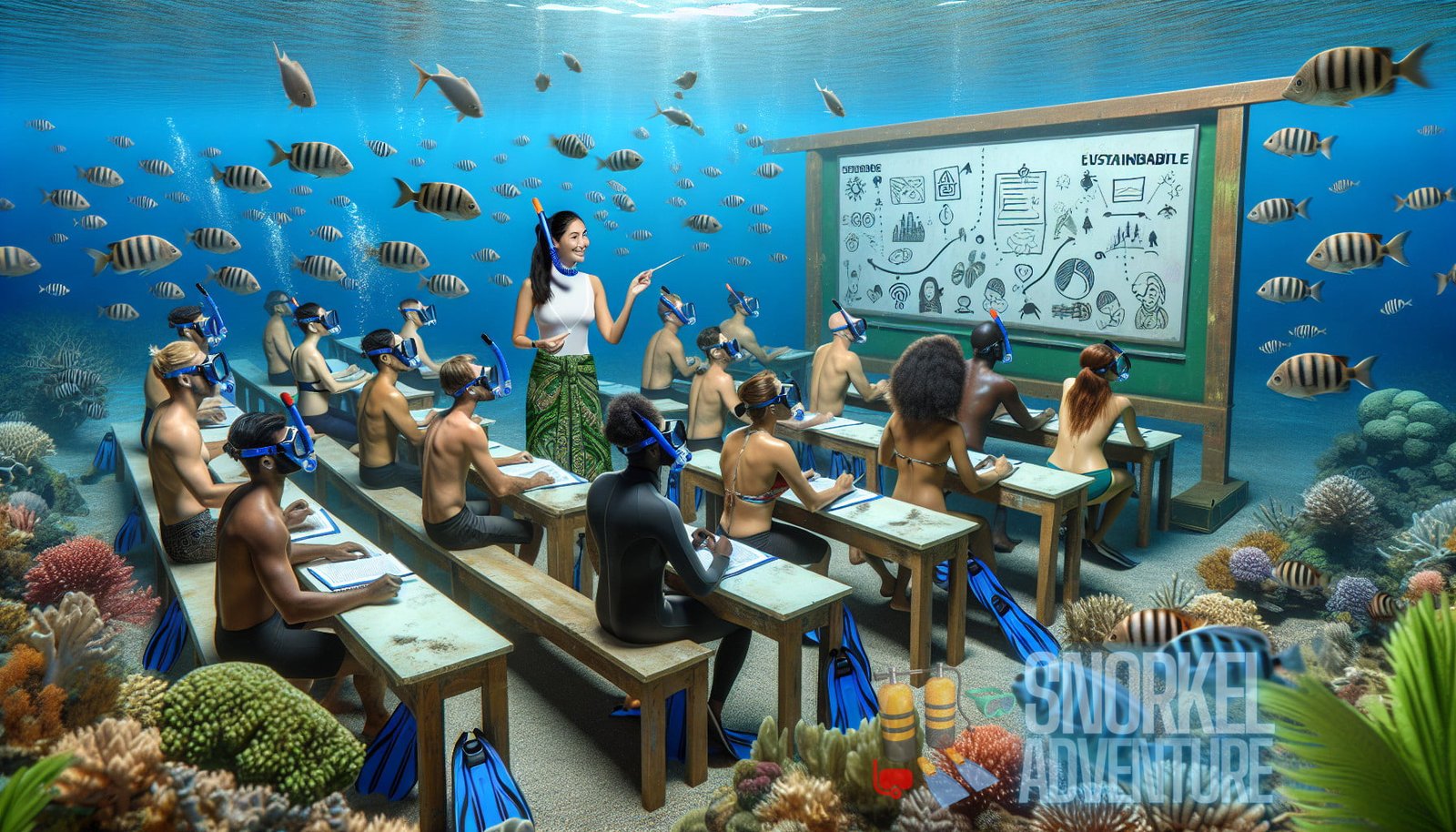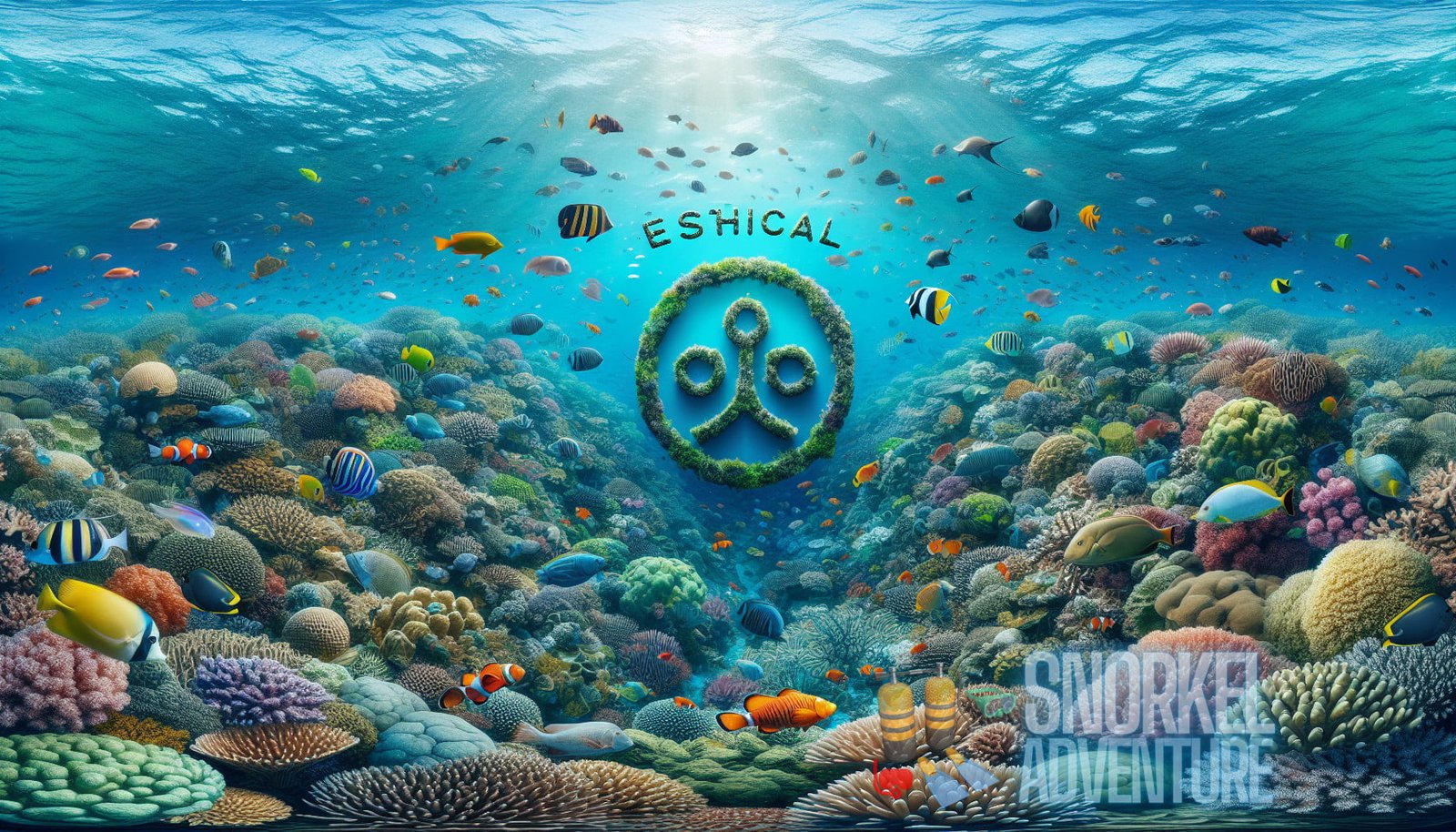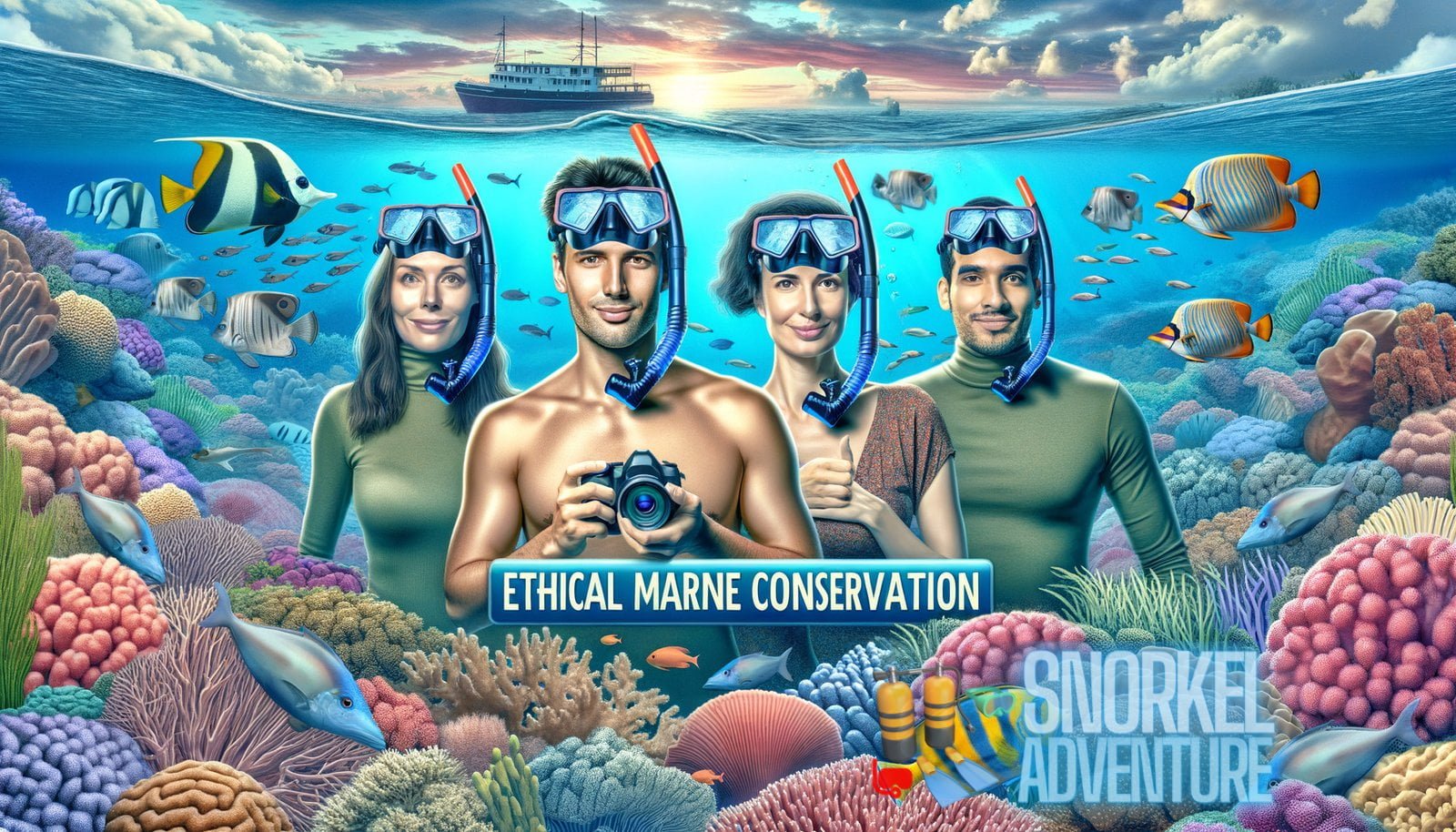Introduction
Snorkeling is a popular activity enjoyed by millions of people around the world who want to explore the mesmerizing underwater realm. However, the increase in snorkeling tourism has raised concerns about the potential negative impacts on marine ecosystems. As a result, there has been a growing awareness of the need for ethical snorkeling practices that prioritize sustainability and conservation. In this article, we will delve into the world of ethical snorkeling, exploring sustainable approaches to ensure the protection and preservation of marine ecosystems.
What is Ethical Snorkeling?
Ethical snorkeling can be defined as the practice of engaging in snorkeling activities while minimizing the negative impacts on marine ecosystems and promoting their long-term sustainability. It involves adopting responsible behaviors and following guidelines that prioritize the protection of marine life, the preservation of coral reefs, and the overall health of underwater environments.
There are several key principles that define ethical snorkeling:
- Respect for Marine Life: Ethical snorkeling involves treating marine life with respect and not interfering with their natural habitat. This includes avoiding touching, feeding, or chasing marine animals, as well as maintaining a safe distance from them.
- Protection of Coral Reefs: Coral reefs are fragile and vulnerable ecosystems that are easily damaged by human activities. Ethical snorkeling requires snorkelers to avoid standing or touching the coral, as even slight contact can cause irreversible harm.
- Minimizing Environmental Impact: Ethical snorkeling aims to minimize the overall impact on the environment by following sustainable practices. This includes avoiding the use of harmful chemicals, not littering, and reducing carbon emissions associated with snorkeling activities.
The Importance of Ethical Snorkeling
Ethical snorkeling is essential for several reasons:
- Protection of Marine Ecosystems: Coral reefs are often referred to as the “rainforests of the sea” due to their rich biodiversity. These ecosystems provide habitat and shelter for numerous marine species. By practicing ethical snorkeling, we can prevent damage to these delicate ecosystems and minimize disturbances to marine life.
- Sustainable Tourism: Snorkeling tourism can provide economic opportunities for local communities, but it must be carried out in a sustainable way. By adopting ethical snorkeling practices, tourism can support the long-term preservation of marine ecosystems and contribute to the well-being of local communities.
- Education and Awareness: Ethical snorkeling can serve as an educational tool, allowing people to learn about the importance of marine conservation. Through responsible snorkeling practices, individuals can gain a deeper understanding and appreciation for the underwater world, inspiring them to become advocates for marine protection.
Sustainable Approaches for Ethical Snorkeling
There are several sustainable approaches that can be implemented to ensure ethical snorkeling practices:

- Education and Training: Providing snorkelers with proper education and training on ethical snorkeling practices is crucial. This can be done through the dissemination of information, training programs, and interactive workshops that emphasize the importance of sustainability and conservation.
- Snorkeling Site Management: Effective management of snorkeling sites is essential for reducing impacts on marine ecosystems. Implementing visitor capacity limits, designated snorkeling areas, and strict regulations can help protect sensitive areas and prevent overcrowding.
- Encouraging Responsible Tour Operators: Collaborating with responsible tour operators who prioritize sustainability and follow ethical guidelines is vital. This includes choosing operators that provide guidance to their clients on ethical snorkeling practices, as well as those who minimize their own environmental footprint.
- Supporting Marine Protected Areas: Marine Protected Areas (MPAs) play a crucial role in marine conservation. By supporting and visiting MPAs, snorkelers can contribute directly to their preservation. MPAs often have strict regulations in place to protect marine life, and they provide a safe haven for species to thrive.
The Benefits of Ethical Snorkeling
Adopting ethical snorkeling practices can have numerous benefits:
- Preservation of Marine Biodiversity: By practicing ethical snorkeling, we can help preserve the diverse range of marine species that inhabit coral reefs. This includes rare and endangered species, which rely on healthy ecosystems to survive.
- Conservation of Coral Reefs: Coral reefs are facing numerous threats, including bleaching, pollution, and destructive fishing practices. Ethical snorkeling contributes to the conservation of coral reefs by preventing further damage and promoting their recovery.
- Economic Opportunities: Sustainable snorkeling tourism can provide local communities with economic opportunities, contributing to their livelihoods and well-being. By supporting ethical snorkeling practices, we can help ensure the long-term viability of this industry.
- Personal Fulfillment: Engaging in ethical snorkeling can be a rewarding and fulfilling experience. By following guidelines and practicing responsible behavior, snorkelers can feel a sense of connection and responsibility toward the underwater world.
Conclusion
Ethical snorkeling is crucial for the protection and preservation of marine ecosystems. By adopting sustainable approaches, practicing responsible behavior, and supporting the conservation of coral reefs, we can ensure that future generations can enjoy the wonders of the underwater world. Ethical snorkeling not only benefits marine biodiversity but also contributes to sustainable tourism and fosters a sense of personal fulfillment. Let us embrace ethical snorkeling and play our part in creating a harmonious symphony with the underwater environment.
Internal Links
External Link
For more information on snorkeling and marine conservation, please visit Wikipedia’s snorkeling page.


